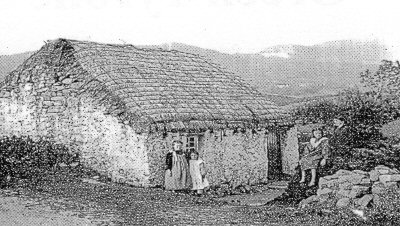Scientists recently identified as the greatest danger to Ireland, Britain and Northern Europe, the possibility of the failure of the massive under-ocean current, the North Atlantic conveyor, which – by diverting the ‘Gulf Stream’ to our direction – gives us a much warmer climate than our latitude would normally merit. Ironically, in this part of the world, the first, most-dramatic and irreversible effect of rampant global warming will be much lower temperatures overall.
It is easier, these bitter frosty mornings, to come to terms with such imminent reality. It may be timely to reflect on the winter of 1740.
Schoolchildren in
This was the century of the Penal Laws – harsh ‘justice’ enacted to punish the mere Irish for being both Catholic and rebellious against the expanding
A cool, dry summer was followed (in 1739) by the coldest autumn in two centuries and that then by a severe, snowy winter. Like the devastating Asian tsunami of a year ago, it arrived immediately after Christmas. So severe was the frost that even the potatoes stored in earth-covered pits in the ground were destroyed.
Over the next year perhaps more than one million of the country’s estimated population of two and a half millions died. This was relatively a greater death toll even than that of the Great Famine exactly a century later – since at the latter time the population was estimated at between six and ten millions.
All the attendant illnesses – cholera, dysentery, typhus, relapsing and road fever resulted. People were reduced to homelessness and begging along the roadside. In the absence of food, people were reduced to scouring the countryside for nettles, roots, seaweed and the likes. The death toll peaked in 1741.
Because the whole continent was labouring under the effects of this ‘mini-Ice Age’ there was little international relief for the starving of
… 1641 Revolt: deaths in Newry …
